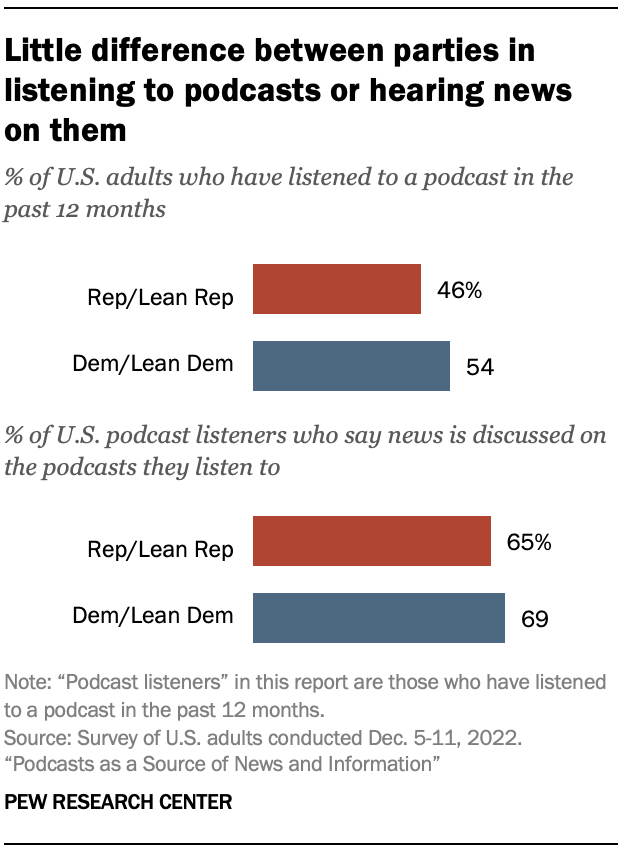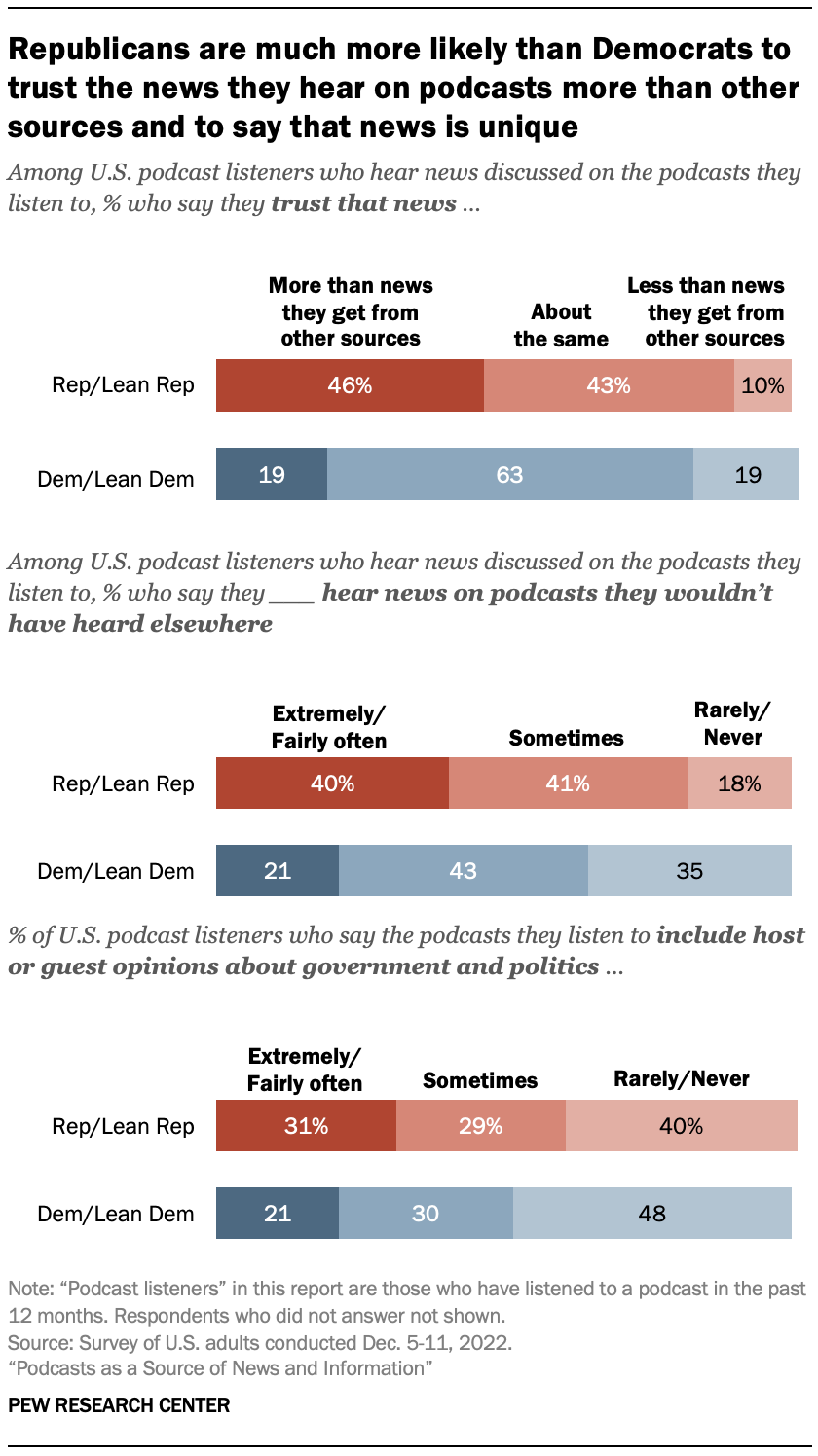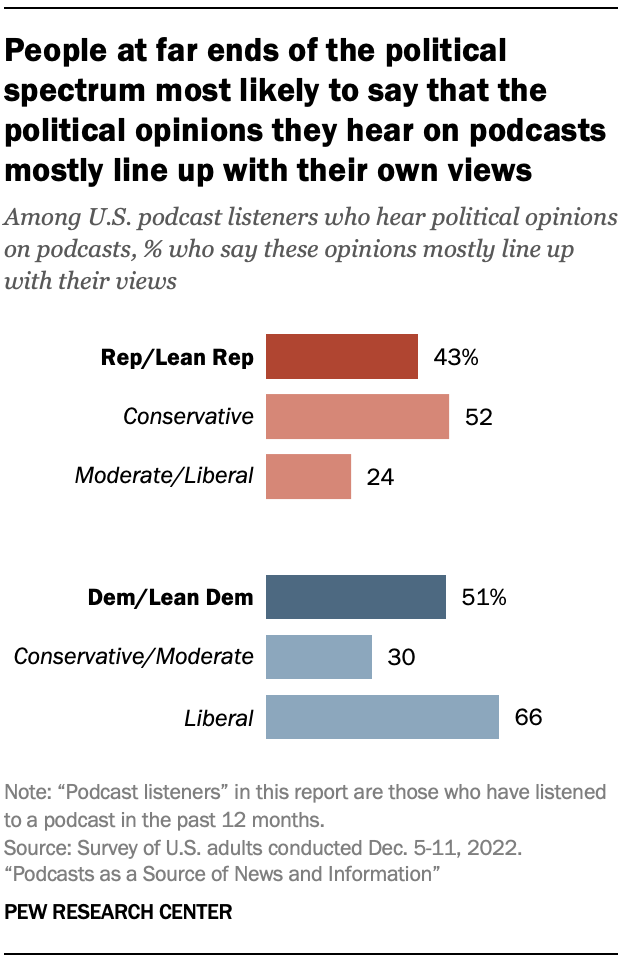
There are broad similarities between the two major political parties in the United States in terms of the share who are listening to podcasts. But once there, Republicans and Democrats often have quite different experiences.
Just under half of Republicans and independents who lean Republican (46%) say they have listened to a podcast in the past 12 months. The share of Democrats and Democratic leaners who listen is slightly higher (54%), but about the same portion of listeners in each party say they listen at least a few times a week (42% of Republican listeners and 41% of Democratic listeners). And Democratic and Republican listeners are also about equally likely to say they hear about news on the podcasts they listen to.
However, there are differences between Republicans and Democrats in some of their experiences with the news they hear. For example, Republicans who listen to podcasts are more likely to trust the news they hear on podcasts more than news they get from other sources, to report hearing things they wouldn’t hear elsewhere, and to hear political opinions.

Among those who hear news on the podcasts they listen to, majorities of both parties expect that news to be largely accurate (88% of Democrats and 87% of Republicans say this). However, nearly half of Republican listeners who hear news discussed say they trust the news they get on podcasts more than the news they get from other sources (46%, vs. 19% of Democrats). In addition, Republican listeners are less likely to say they listen to podcasts connected to a news organization (14%, vs. 26% of Democratic listeners).
These sentiments may reflect a general distrust of many traditional media sources among Republicans overall.
And 40% of Republicans who hear news on podcasts say they extremely or fairly often hear news there that they wouldn’t have heard elsewhere, while about half as many Democrats say this (21%).
Among podcast listeners overall, Republicans who listen to podcasts are also somewhat more likely to be listening to content with political opinions. About three-in-ten podcast listeners who are Republicans (31%) say they listen to podcasts that include a host’s or guest’s opinions about government and politics, vs. 21% of Democratic listeners.

Within the parties, more ideological partisans are more likely to hear political opinions on podcasts. For example, among Republican podcast listeners, self-described conservatives are more likely than moderate or liberal Republicans to report listening to podcasts that feature political opinions (36% and 22%, respectively, say they hear this content extremely or fairly often), and the same is true of liberal Democrats when compared with moderate or conservative Democrats (24% vs. 17%).
Among those who hear political opinions on podcasts, Democrats are modestly more likely than Republicans (51% vs. 43%) to say that the opinions they hear line up with their own. This is especially common among liberal Democrats and conservative Republicans. Liberal Democrats (66%) are roughly twice as likely as conservative or moderate Democrats (30%) to say that the political opinions they hear on podcasts line up with their own. A similar pattern exists among Republicans: Conservative Republicans (52%) also are roughly twice as likely as liberal or moderate Republicans (24%) to say the opinions they hear align with their own.




